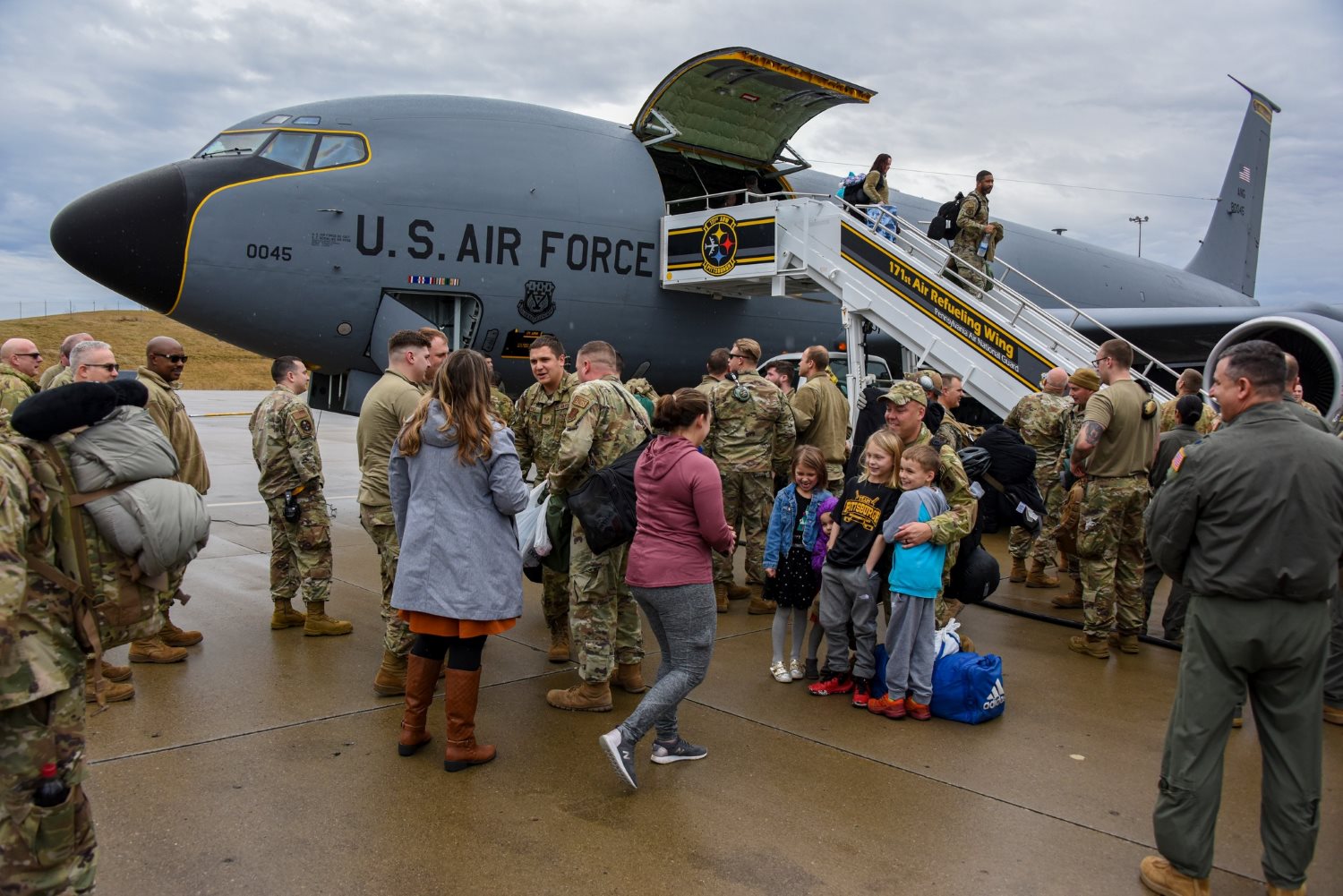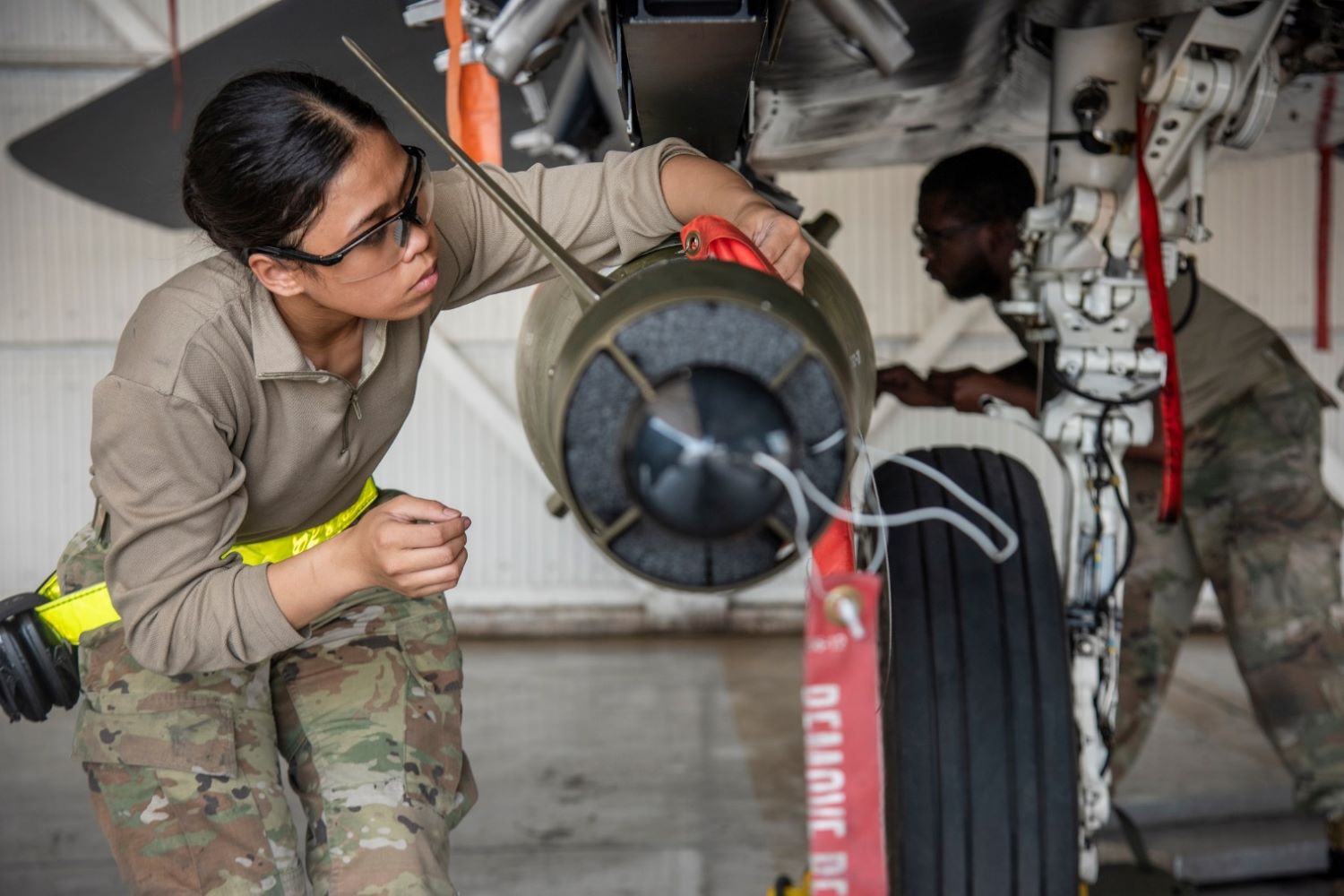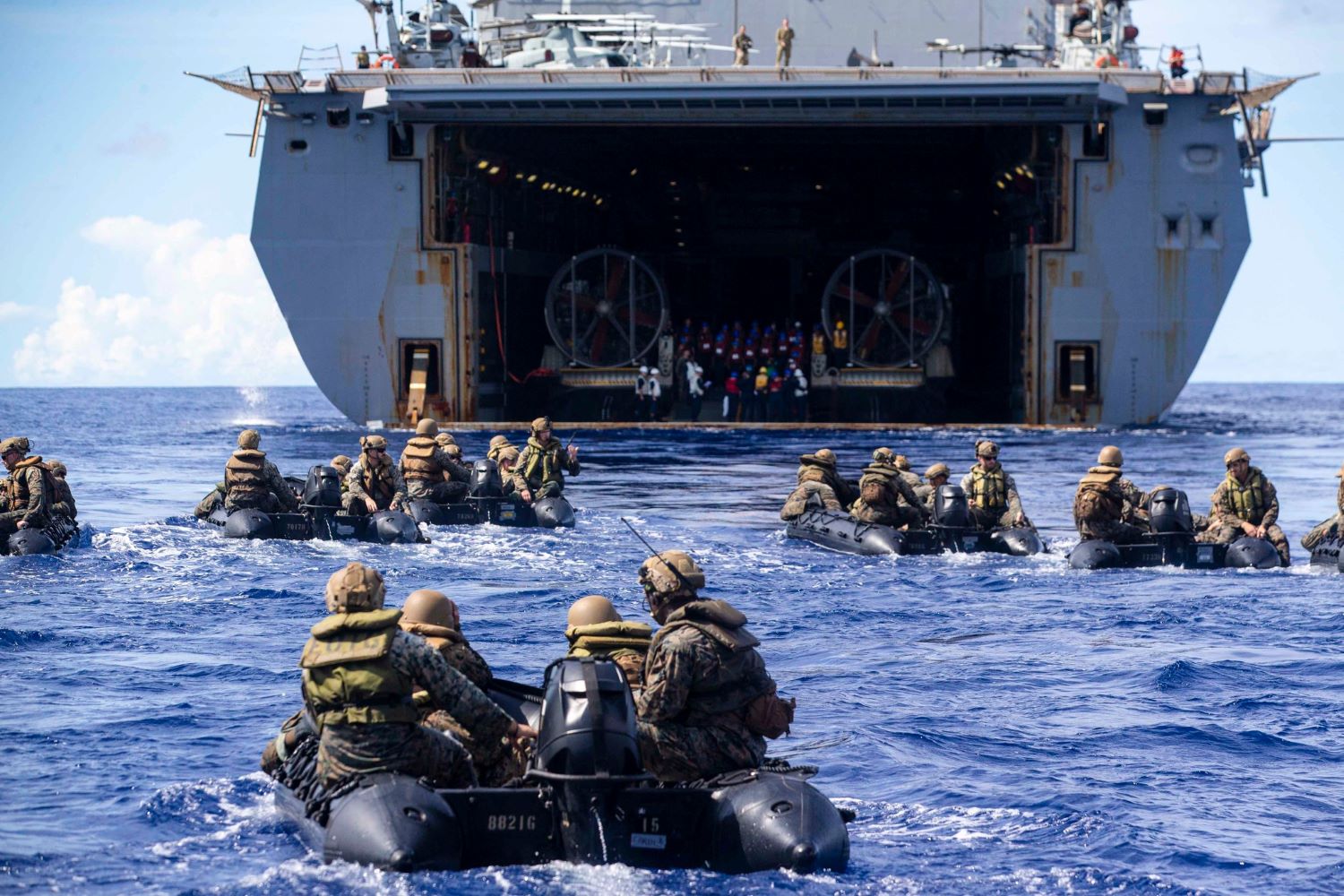From Civilian to Defender: What It Takes to Get Hired in the Department of Defense
According to PwC analysis, the aerospace and defense industry generated revenues of $741 billion in 2022 (up only 3% from 2021) and operating profit of $67 billion (up 8%). The minor increase in revenue fell short of forecasts as rising demand in end markets impacted production due to supply chain and labor issues.
As the game is new and active, there are many rooms in it for the people that want to have connections with the government. Not only enterprises want to take that contract, but normal people who want to get hired at the DoD as well.
The Department of Defense employs 950,000 civilians, many of whom work in essential positions around the world. There are numerous jobs available that need a wide range of skills.
The positions are open, but to get hired at the DoD is not like eating a cake. When you work for the Pentagon, there are a few things you need to keep in mind to make sure that you’re going to grab a seat at the table.
Empowering Our Armed Forces – A Deployment in Support
The Department of Defense (DOD) workforce is made up of military personnel, civilian employees, and contractors. A DOD civilian is not a member of the military but is appointed to federal civil service. DOD civilians work for military departments (such as the Army, Navy, and Air Force) as well as other defense agencies and field activities (such as the Defense Health Agency).
Federal civilians have been supporting the armed forces since the American Revolution. During World War II, for example, civilians offered medical and logistical support to military forces. The civilian workforce of the Department of security has evolved over time to accommodate the department’s growing needs and the changing terrain of national security.
Appropriated fund white-collar employees make up a large portion of the DOD civilian workforce. They differ from other types of DOD civilians, such as non-appropriated fund civilians and those covered by the Federal Wage System (for example, blue-collar employees).
DOD citizens contribute to the nation’s defense and protection. They help warfighters in a variety of ways, including engineering, supply management, information technology, cybersecurity, intelligence, financial management, and law.

Some civilians, for example, directly support military operations by training, advising, and supporting military personnel from other nations in areas such as ground logistics, cybersecurity, and battle readiness. Other civilians assist in the procurement, construction, testing, or maintenance of large weapons systems utilized by soldiers in operations.
Some DOD civilians are willingly or involuntarily sent to abroad places such as Iraq or Afghanistan. They serve alongside deployed military forces to ensure that combat, post-conflict, or humanitarian missions are successful.
And to become one of them, people need to know the recruitment process and key points to get hired at the DoD. One of the very crucial elements is security clearance.
Enhancing National Security through Stringent Hiring Practices
Security clearance is a crucial aspect of obtaining jobs or internships in the Department of Defense. The clearance process can take time, but the DoD often grants interim clearances to expedite the hiring process.
Interim clearances are relatively easier to obtain than full clearances and enable individuals to start working while their full clearance is being processed. The DoD places emphasis on the importance of security clearances due to the sensitive nature of the work involved.
Different levels of security clearance exist within the DoD, such as Secret or Top Secret. The specific level required depends on the nature of the position and the sensitivity of the information involved. Clearances are granted based on an individual’s ability to demonstrate loyalty, reliability, and a commitment to protecting national security interests.
Having a security clearance is essential for individuals working in roles that require access to classified information. It signifies that they have undergone the necessary vetting process and have been deemed eligible and trustworthy to handle sensitive materials.
Maintaining a security clearance is equally important. Individuals with a security clearance must adhere to strict guidelines and regulations, as any breach or mishandling of classified information can have serious consequences.
Security clearance is not a one-time process. It requires periodic reinvestigations to ensure that individuals continue to meet the necessary criteria for access to classified information. These reinvestigations help maintain the integrity and security of the DoD’s operations.
The Defense Counterintelligence Security Agency is the primary investigative service provider for the Federal Government, conducting 95% of all background investigations for over 100 agencies. DCSA also provides an end-to-end vetting service for DOD services and components including submissions, investigations, adjudications, and continuous vetting.

For questions regarding the status of an individual’s security clearance, individuals should contact their security manager or designated security official for assistance.
After getting a clearance, there a more steps before the evaluation process. However, since it’s the most popular question, let’s talk about it.
The Weight of Interviews in the Application Process
A few years ago, getting into a civil service job meant passing an exam. In the 21st century, just 20 percent of federal jobs require such a test. If you’ve got the skills the job calls for, the focus will be on your background, work experience and education.
Following your application, the agency will rate and rank it. Rating evaluates your application to the job’s minimum requirements. Ranking compares your qualifications and experience to those of other applicants.
After that, the agency evaluates candidates by assigning numerical scores and selecting the best candidate. An alternative strategy is to group applications and select any of the candidates in the top category.
Some applicants, such as veterans, get special preference during this competitive phase. Veterans receive a five-point bonus if the agency utilizes numerical scoring, or ten points if they are incapacitated. If the agency employs category grading, qualifying disabled vets are placed at the top.
Other veterans may not make the top cut, but they are given preference over non-veterans in their group. The candidate must present documentation proving that he or she is a veteran.
The interview holds significant importance in the overall application process for DoD positions. While other factors, such as the resume and qualifications, are essential, the interview can heavily influence the final decision.
If a candidate reaches the interview stage, it indicates that they have already met certain criteria and qualifications based on their resume. However, a compelling interview can make a substantial impact and increase the chances of being selected for the position.
Having a successful interview can outweigh other aspects of the application, as it provides an opportunity for the hiring team to directly assess a candidate’s suitability and skills for the role. A strong interview performance can leave a lasting impression and demonstrate one’s ability to effectively communicate, think critically, and contribute to the organization.
While an outstanding resume may still be considered if a candidate has an average interview, the conversation highlighted that a subpar interview is unlikely to result in selection over another candidate who excelled in the interview.
Therefore, while the resume plays a significant role in getting to the interview stage, the interview itself carries considerable weight in determining the final outcome of the application process for DoD jobs.
It is worth noting that interview questions can vary based on the position, department, and level of responsibility. Therefore, it is advisable to leverage resources such as career guides, online forums, and government websites to gather more information on typical interview questions for DoD jobs.
Additionally, considering the desired skills and competencies outlined in the job description can help in anticipating the types of questions that may be asked during the interview.
Preparing thoughtful and concise answers that highlight relevant experiences, talents, and accomplishments will boost your chances of success during the interview process. It is also advantageous to practice and develop these responses to ensure clarity and confidence during the actual interview.

There are various specific avenues to government employment that offer unique opportunities in addition to the traditional hiring process. College students can apply for internships that will provide them with useful experience and exposure to federal agencies. Military spouses also have the advantage of obtaining jobs through non-traditional channels, skipping the traditional competitive procedure.
Similarly, spouses and partners of federal employees who have been working abroad can apply for posts upon their return to the United States, typically with the option to bypass the usual competition.
Disabled people are given extra consideration in the recruiting process, emphasizing the value of diversity and equal chances.
Finally, applicants for senior executive posts in the government may be given preferential treatment if they can demonstrate strong executive accomplishments in previous roles. These specific paths aim to increase access and diversity within the government workforce.
A Guide to Becoming a Federal Civilian Employee
The Department of Defense recruits civilians in a variety of methods. Many civilians join the department’s workforce via USAJOBS, the federal government’s official website for federal job postings.
Others may enroll through special recruitment programs, both federal and departmental, such as developmental programs (e.g., internships, fellowships, and scholarships), personnel exchange programs, and interagency hires.
Many non-SES DOD civilians are appointed to positions by the traditional competitive hiring process required in Title 5 of the U.S. Code. Procedures such as posting the position on USAJOBS, evaluating and ranking candidates against position qualifying standards to decide who is most qualified, and applying veterans’ preference are all part of the process.
Non-SES civilians are appointed to DOD positions under special hiring flexibilities designed to simplify and/or simplify the recruiting process. In general, hiring flexibilities may waive or alter the application of some or all Title 5 competitive hiring requirements.

Just like counting the federal workforce, there’s a variety of routes to becoming a federal employee. The government USAJOBS website provides a dozen other options for various groups of people, including veterans, Native Americans, executives, military spouses, and current federal employees considering a career change.
Some federal jobs are not available through traditional job-search procedures. To become a member of Congress, for example, you must first win an election. A federal judge must be nominated by the president and then confirmed by the Senate. A nomination, Senate approval, and mountains of paperwork are all required to become a US ambassador.
For lower-ranked employment, the USAJOBS site is the place to go. You can utilize the website to look for potential government employment for which you are qualified. You can also create a profile, post your resume, and upload any additional paperwork you require. Then you can send copies to as many employers as you want.
A set of Powerful Instruments to Play a Good SongTop of Form
From a recruiter’s standpoint, there are two crucial factors that employers look for when evaluating candidates for federal government positions.
The first is a propensity to do the work required for the job. This involves showcasing relevant skills, qualifications, and experiences that align with the position’s requirements. Demonstrating a genuine interest in the field and a track record of success can make a candidate more appealing.
The second factor is the ability to work hard. Employers value individuals with a strong work ethic, determination, and a willingness to put in the necessary effort to excel in their job responsibilities. Highlighting instances of going above and beyond, meeting deadlines, achieving goals, or overcoming challenges can demonstrate this ability and make a candidate stand out.
By emphasizing both the propensity to do the work and the ability to work hard, candidates can increase their prospects of being hired for federal government positions. These qualities are highly valued by recruiters and employers alike and can make a candidate more competitive in the hiring process.
One more thing is network, it is critical.
There are numerous methods to find work or advance in your career by taking advantage of opportunities available online. However, nothing beats good networking. It is considerably more difficult to win people over with words alone; creating personal connections endears you to others faster and makes it easier for them to figure you out.
Instead of throwing a business card into every available hand, focus on getting involved in industry-related events and groups. Look for meet-ups, conventions, and even job fairs where you may make a personal appearance and meet other professionals in person.

Language abilities are highly valued for individuals hoping to work in foreign policy positions within the Department of Defense. The most popular languages are Chinese, Russian, Persian (Farsi), and Arabic.
Working with NATO countries and the African region requires fluency in French. Spanish is required for engagements in the Western Hemisphere, and knowledge of Portuguese is also useful.
While other languages are important, these key languages are in great demand due to the DoD’s global alliances and operational needs.
The military provided a lot, involving an intense awareness of what you’re supposed to be doing, when it’s needed and why. But the civilian world isn’t always so clear-cut.
Civilian employers sometimes work on vague ideas or fail to offer key pieces of information to get the job done. When this occurs, it is critical that you stay focused on the task at hand and create your own goals.
When you have the ability to set targets for yourself, you’ll present a strong work ethic and innovative thinking.









